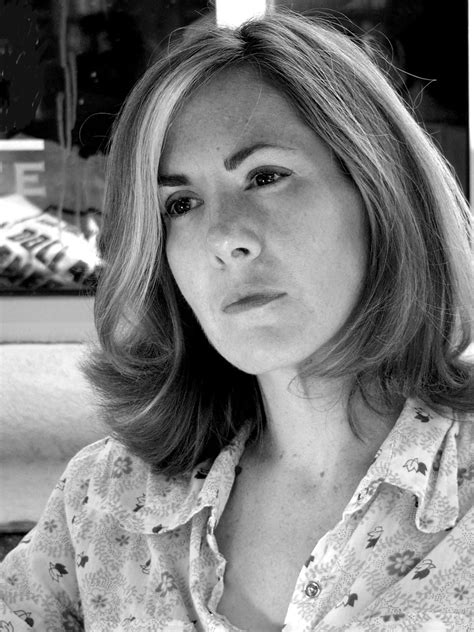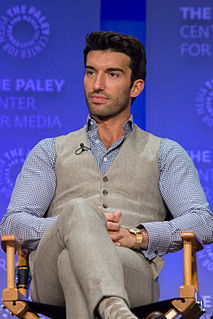A Quote by Jessica Valenti
Young women know that something is off; they know that the world is a messed-up place. They know that the world is a sexist place because they've had experiences in their own life; they see things happening to their friends, to their parents. But because feminism isn't widely accepted, because they don't necessarily have access to feminist thought or to feminist groups, they don't necessarily have a language to put behind the feelings and the thoughts that they're having. And they certainly don't have a support system to let them know like, hey, that's okay; you're right, that is screwed up.
Quote Topics
Accepted
Access
Because
Behind
Certainly
Experiences
Feelings
Feminism
Feminist
Friends
Groups
Had
Happening
Having
Hey
Know
Language
Life
Like
Messed
Necessarily
Off
Okay
Own
Parents
Place
Put
Right
Screwed
Screwed Up
See
Sexist
Something
Support
System
Them
Things
Things Happen
Thought
Thoughts
Up
Widely
Women
World
Young
Young Women
Related Quotes
I know there's a part of the feminist world that is like, "Hey, screw 'em, we'll do our own thing over here," and I can see there's a value in that. But a kind of nudgy part of me thinks: No. I want access, and I want my daughters to have access to the exact same thing, because we all know there's no such thing as separate but equal.
It's always been important to me to be very upfront with people about the fact that I do identify as a feminist because it's an opportunity to expose people to and educated them about the movement. Young women don't identify as feminist is because they don't know any feminists and don't have a comprehensive understanding of what it is, I gave them example and an opportunity to ask about it. And once they saw that I wasn't the embodiment of the negative feminist stereotype - that I was a normal teen girl just like them - I think they became more open to learning about what feminism really is.
I believe I was raised with feminist values, but I don't think I ever heard my Mom call herself a feminist. Before I identified as a feminist myself, I thought of feminism as more of a historical term describing the women's movement in the '70s but didn't know much about what they had done and didn't think it applied to my life at all.
For a lot of women who don't go to college, or for a lot of women who aren't in New York or D.C. or someplace where there's like a large feminist organization they can get involved in, they may be doing feminist work, right, like locally or with a grassroots organization or in their own lives, but if they don't have that support system and if they don't have that availability to feminist language, I think we're missing out on something.
I think people resist feminism because they're scared. I think for women, they're scared of being picked on or of being called out. I hear from a lot of young women, you know, I don't want to call myself a feminist because I don't want to get in an argument with someone. And it's just not cool; like it's not a cool thing to be associated with. There's no benefit to saying that you're a feminist.
Naturally my stories are about women - I'm a woman. I don't know what the term is for men who write mostly about men. I'm not always sure what is meant by "feminist." In the beginning I used to say, well, of course I'm a feminist. But if it means that I follow a kind of feminist theory, or know anything about it, then I'm not. I think I'm a feminist as far as thinking that the experience of women is important. That is really the basis of feminism.
If my choice is to, I don’t know, be with a lot of men, or if I enjoy a really physical relationship, I don’t think that’s necessarily being anti-feminist. For me the argument of feminism never really should have come into the picture. Because I don’t know too much about the history of feminism, and so I’m not really a relevant person to bring into the conversation. Everything I was writing was so autobiographical, it could really only be a personal analysis.
The word 'feminist' is a word that discriminates, and I'm not into that. I don't think there has to be a separation in life in anything. [...] Labels are for other people to understand us, so for me, I know how I feel and I don't need to call myself a 'feminist' or 'not a feminist' because I know what my truth is.
I remember at the time - right before we started Feministing.com - doing a Google search for the term "young feminism" and the term "young feminist," and the first thing that came up was a page from the National Organization for Women that was about 10 or 15 years old. And it just struck me as so odd that there was all of this young feminist activism going on, but that it wasn't necessarily being represented online, that the first things in a Google search to come up were really, really old. I think to a certain degree we really filled a gap, and that's why we got such a large readership.
And, you know, being able to wear the stars and stripes, when you step up on one of the blocks or, you know, when you step off of an airplane or when you hear the national anthem play, you know, it's one of the greatest feelings in the world because you know that there are people at home who are supporting you and watching you.
There was no real strategic decision about editorial tone. It was kind of a write whatever you want to write, and we'll see how it goes. I think that we lucked out in that all of the women who started writing at Feministing.com were really funny, and I don't think that's something people are used to seeing or hearing when they read feminism. You know, you think feminism and you kind of think academic, women's studies, dry, humorless; there are all of these stereotypes that go along with what feminist thought is and what feminist writing is.
































